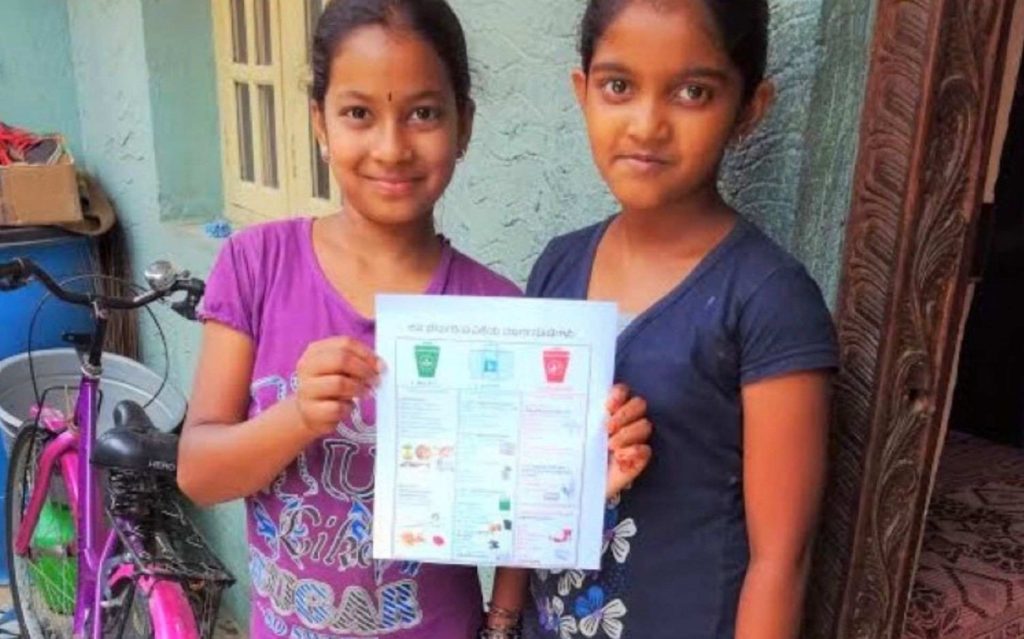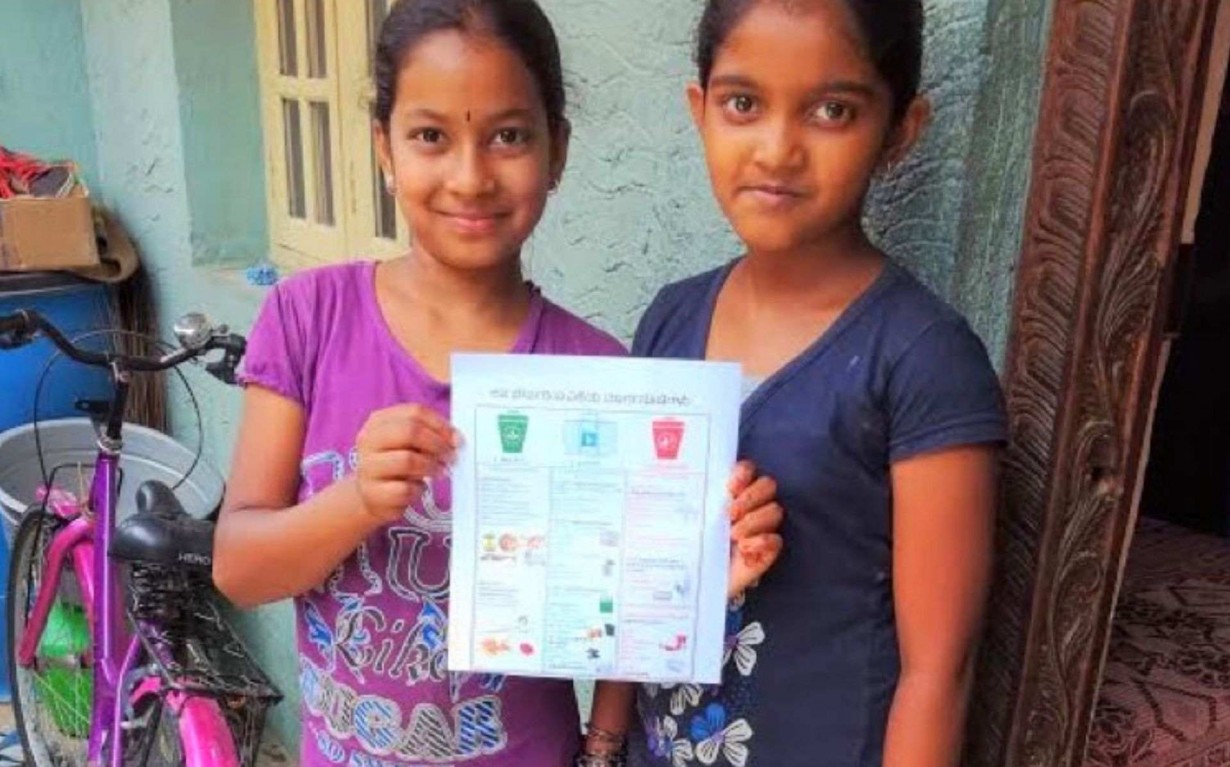Waste Segregation at the source is one of the foremost steps in waste management. It allows for a better disposal of waste and for recycling facilities to reuse in more systematic manner. Usually, solid waste management(SWM) committees take care of proper segregation tasks by disseminating information to the households and housekeeping staffs through pamphlets, meetings and putting fine on defaulters. However, in nearby areas, maids who work in these apartments have scant knowledge about waste segregation. Green citizens program has been initiated in Bangalore.

On 22 May 2017, Akanksha from Bangalore team of Earth5R conducted a workshop for Kalena Agrahara area residents on Bannerghatta Road, Bangalore.
She started the workshop by explaining the importance and need of waste segregation at the source. She gave the citizens the glimpse of the whole process through a simple visual presentation which included an illustration of wet, dry and rejected waste.
By keeping in mind the local language of the community Akanksha presented the program in Kannada. She explained to the households about the reason behind the separation of waste and how they can convert their wet waste into compost. She educated the residents on waste segregation by conducting a practical demo for a better learning experience. Akanksha segregated their current waste of the day and asked them to do the same afterward.
An Important Observation:
Akanksha found that although some households have been separating the waste by keeping two bins, one for dry and one for wet, the proper segregation was not being done due to lack of knowledge on what to put under dry waste, wet waste and hazardous (rejected waste)
She observed that dried leaves and biscuit wraps were mixed as dry waste which shows how they had conceived the meaning of ‘Dry’ unaware of the fact that dry leaves are biodegradable in nature unlike plastic wrap and must be kept in the wet waste dustbin.
This is where such workshops create an impact as they are interactive in nature and citizens can learn green practices by doing it the right way.
After the presentation and explaining thoroughly about what things should come under dry, waste and rejected, Akanksha asked them to paste the presentation material on their wall or follow it daily while segregation to acquire an impeccable result.
Also towards the end of the workshop, Akanksha organized a quick and interesting quiz to recap their learnings and solved their doubts in order to analyze whether they understood the waste segregation process.
She was overwhelmed to see the inquisitive participation of households, especially the kids.
Akanksha also asked kids to share this information with their classmates and teachers and come up with waste segregation projects during their vacation or class activity which can better their understanding and can widen their outlook about the current scenario of segregation and environmental condition.
Apart from waste segregation Akanksha also talked about the conversion of wet waste into organic manure through the process of composting which can be consequently used as a foundation for urban organic gardening.
She educated the citizens about the process of composting and how they can achieve the best output in hygienic and healthier manner.
Moreover, the community which ranged from kids to elders also received the knowledge about Rainwater Harvesting and Renewable energy source like Solar power.
Akanksha explained to them that how these green practices are correlated and after proper practicing one can achieve the most sustainable way of living creating more green citizens.
-Reported by Akanksha
Learn more about Earth5r



